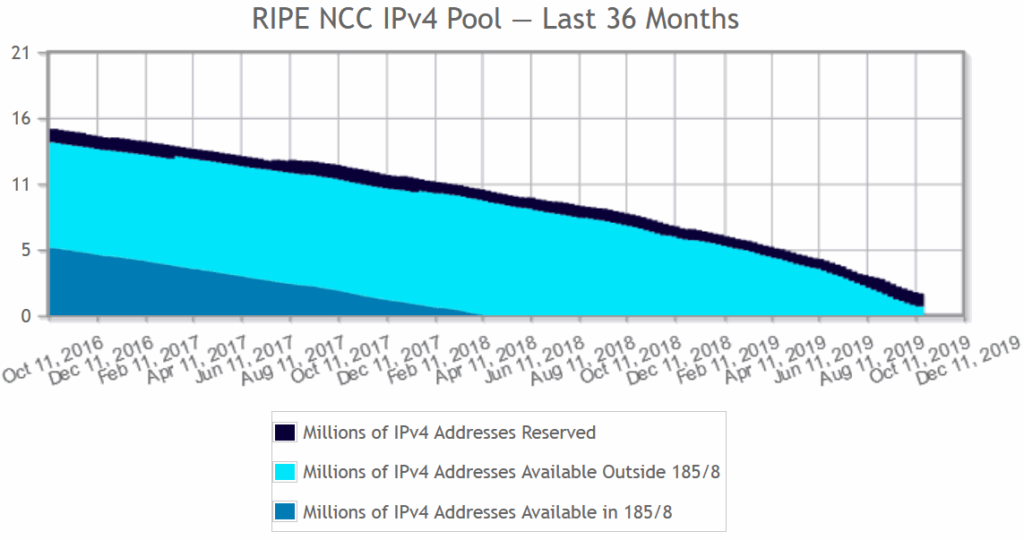The pool of Internet Protocol v4 is going to end by November 2019. The Regional Internet Registry (RIR) has already started running out of IP addresses by early 2012. The RIPE Network Coordination Centre (RIPE NCC) has confirmed that in October 2019, the reserve of IPv4 was only 1 Million and this has been expected to finish in November 2019.
The RIPE Network Coordination Centre is responsible for managing the regional distribution of internet addresses for U.K., Middle East, Europe, and Central Asia.
Internet Protocol v4 is a part of seamless technology used for connecting local computers and devices with the world wide web. Although there are IPv6 addresses used by many of the Internet service providers, still many ISPs are using IPv4.
To make the difference between the two let us show you the example.
- IPv4 – 123.85.67.90
- IPv6 – 0:0:0:0:0:ffff:7b55:435a
Many of the ISPs are using both IPv4 and IPv6 parallel just to avoid connectivity problems with websites, devices, and services. It is estimated that the new IPv6 consists of around 340 trillion addresses.
The RIPE Network Coordination Centre has studied around 4000+ network operators this year. The results revealed that IPv4 is running out of addresses.
One of the spokespersons of RIPE NCC said that “On October 2, we announced that we had one million IPv4 addresses left in our available pool, which we expect to run out in November 2019. Any IPv4 addresses we recover after this point will be allocated to new entrants via a waiting list. This will probably be a few hundred thousand addresses – not much compared to the many millions that networks in our region need. It’s important to note that we have been in a state of IPv4 exhaustion since 2012 when we reached our final allocation from IANA. IPv4 ‘run-out’ has long been anticipated and planned for by the technical community and no one needs to worry about the Internet suddenly breaking. But it does mean that the pressure will continue to build for many networks, necessitating the use of complex and expensive workarounds. Our advice to network operators is to take stock of their IP resources and to make sure their IPv6 plans are making progress.”
Those who have storage of IPv4s or have moved to IPv6, might not have to worry. The solution left is sharing the internet (Carrier Grade NAT) which can cause some problems to the Internet systems that require a unique IP address to process, identify and block user activity.
It has also been observed that ISPs are commercially trading retired IPv4 addresses and this is probably a good way out unless IPv4 completely vanish.






